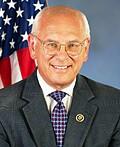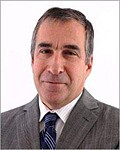In light of the undermining of environmental health protections under the Trump administration, it is a critical moment in history to ensure that science is at the foundation of policy decisions. What is the state of science in policy, and what does science do to inform policy makers? What can be done to guarantee that research is conducted and published without undue influence, censorship, or distortion? Why is science a field of public service?
On Tuesday, June 13, 2017, at 10:00am Pacific/1:00pm Eastern, our CHE Partnership webinar discussed the Scientific Integrity Act (S. 338/H.R. 1358). Introduced on February 7, 2017 and sponsored by Senator Bill Nelson (D-FL) and Congressman Paul D. Tonko (D-NY), the bill aims to codify Obama-era policies of 24 federal agencies that maintain open communication of scientific research results by federal scientists and prohibit the manipulation or suppression of research results. We learned about the impetus for the bill, the proposed implementation, the importance of data sharing, and the implications of the suppression of research results to the field of environmental health.
Featured Speakers

Congressman Paul D. Tonko (D-NY) represents New York’s 20th Congressional District, including the communities of Albany, Schenectady, Troy, Saratoga Springs and Amsterdam. He represents all of Albany and Schenectady Counties and parts of Montgomery, Rensselaer and Saratoga Counties. He is serving his fifth term, after first being sworn into Congress in 2009.

Andrew A. Rosenberg, PhD, is director of the Center for Science and Democracy at the Union of Concerned Scientists. He has more than 25 years of experience in government service and academic and non-profit leadership. He is the author of scores of peer-reviewed studies and reports on fisheries and ocean management and has published on the intersection between science and policy making.
Dr. Rosenberg came to UCS from Conservation International, where he served for two years as the organization’s senior vice president for science and knowledge. Previously, he served as the northeast regional administrator of the National Marine Fisheries Service at the National Oceanic and Atmospheric Administration, where he negotiated recovery plans for New England and mid-Atlantic fishery resources, endangered species protections and habitat conservation programs. He later became deputy director of the service.
Dr. Rosenberg is also the convening lead author of the oceans chapter of the U.S. Climate Impacts Advisory Panel. He is a member of the National Academy of Sciences’ Ocean Studies Board and the U.S. Commission on Ocean Policy. He is a professor of natural resources and the environment at the University of New Hampshire, where he previously served as dean of the College of Life Sciences and Agriculture.
Dr. Rosenberg received his doctorate in biology from Dalhousie University in Halifax, Canada and previously studied oceanography at Oregon State University and fisheries biology at the University of Massachusetts.
This webinar was moderated by Steve Heilig, MPH, CHE's director of Public Health and Education. It lasted for 45 minutes and was recorded for the archive.
